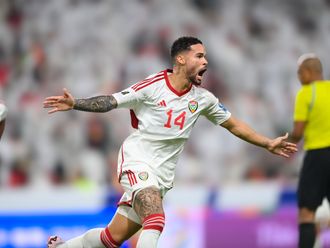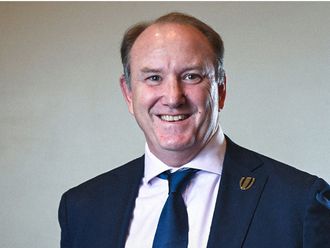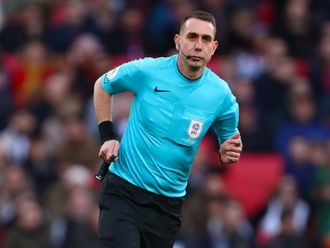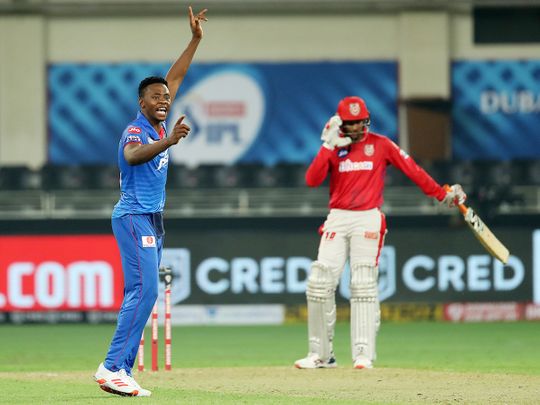
Dubai: South Africa and the world watched transfixed when, on February 11, 1990, Nelson Mandela left Cape Town’s Victor Verster prison and raised his fist in salute to the crowds as he stepped out on his and the nation’s ‘Long Walk to Freedom’ — later to become the title of his autobiography.
The start of a momentous political transition, it was also a key moment in the evolution of a cult of Mandela, both at home and abroad.
From among the millions who watched, one young mind who had just about turned five years old, grew up with a deep imprint of the South African anti-apartheid revolutionary, political leader and philanthropist who later went on to serve as the new nation’s first black and democratically elected head of state.
- IPL 2020 in UAE: Kagiso Rabada believes his Delhi Capitals can get job done
- IPL 2020 in UAE: Royal Challengers Bangalore go second in standings
- IPL 2020 in UAE: Delhi Capitals beat Rajasthan Royals by 13 runs — as it happened
- IPL 2020 in UAE: KL Rahul continues to wear Orange Cap, Purple with Kagiso Rabada
Kagiso Rabada may not have had the best part of reason or the sweet luxury of age, but he sure could feel that someone truly momentous was making a change. The son of a doctor and a lawyer, Rabada — nicknamed ‘KG’ — had had a glimpse of Mandela just once when the late President visited the St Stithians College in Johannesburg. The small Rabada had waved to the leader and Mandela had waved back. That was so special to Rabada that he has now grown with a memory that has indeed designed and moulded his career and character.
In 2013, Rabada left school to pursue a career in cricket. His debut for South Africa in limited-overs cricket came in November 2014, and by January 2018, the South African had topped both the ICC ODI bowler rankings and the ICC Test bowler rankings while just 22 years old. A few months later, in July, he became the youngest bowler to take 150 wickets in Tests (at 23 years and 50 days).
Inspiration
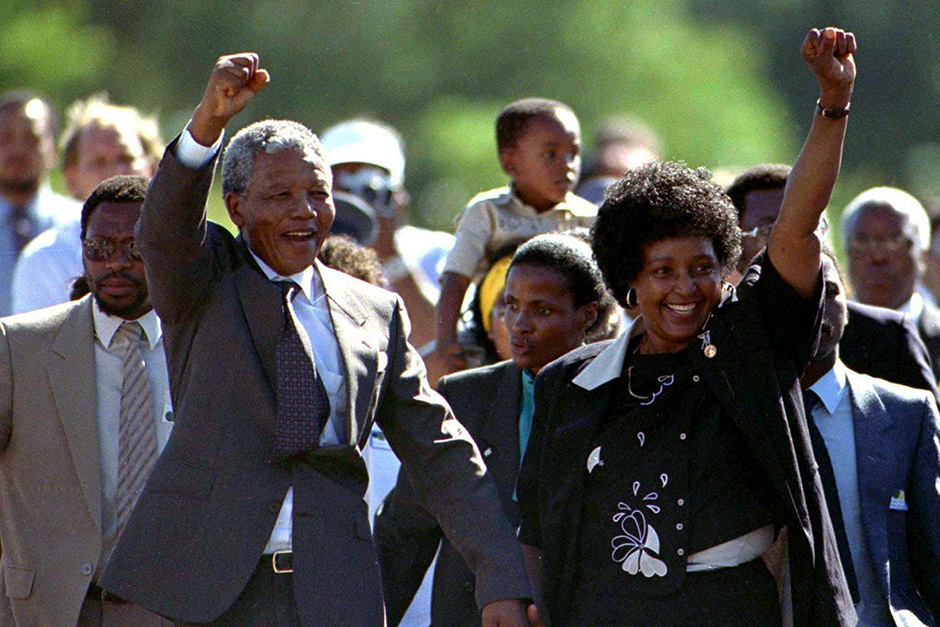
“I do think Nelson Mandela has played a huge, huge role in the world, particularly in South Africa while fighting for our basic right of freedom. It is important for people to feel that liberation of the mind is more important,” Rabada told media via a teleconference on Thursday.
“As a sportsperson, we are in a unique position wherein we can influence people, especially youngsters. I play cricket and there are young people who follow and my exploits and skills on the field. They are watching me off the ground as well, and that’s where my responsibility comes in. I need to spread the word of change.”
In 1993, Mandela was awarded the Nobel Peace Prize, jointly with FW de Klerk, and in 1995 he won over everyone but the most diehard right-wingers as he saluted the overwhelmingly white Springbok side that won the Rugby World Cup in Johannesburg.
Mandela is immortalised in a stained-glass window in Soweto’s giant Regina Mundi Church; statues of him dancing, boxing or raising his fist are dotted across the country; and in 2012 the central bank issued a set of bank notes bearing his face, with the announcement coming on February 11, the 22nd anniversary of his release from prison.
Make a difference
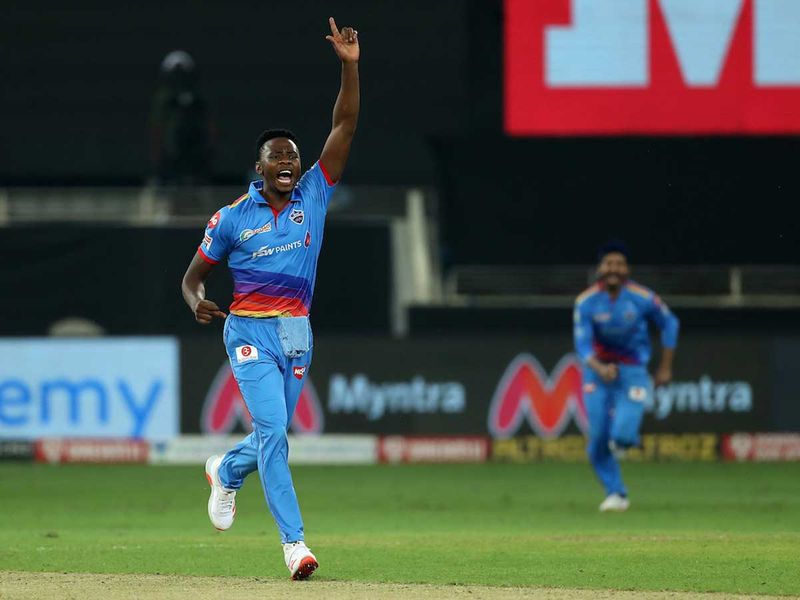
“There is nothing different when it comes to all people anywhere in the world. Everyone is doing their thing to make a difference in the world. For me, I am just playing cricket, but there is a social responsibility in this,” Rabada said.
“At times, I’ve got to remember that I am up to fight for the right cause as that is far more important. However, I wouldn’t want to shove these ideas down anyone’s throat. Liberation is really important and everyone has the human right and focus to be treated with dignity.”
And from there emanates Rabada’s passion for the sport and his thirst to be among the best of the best. “I enjoy bowling whenever I have the ball. Every time I am given the ball I know that I have a job to do. Cricket is my passion and sport is my passion, and I have to do the best I can each time,” Rabada said.
“My job out there is to take wickets, and that’s all I try and do.”
Rabada’s entry into the cash-rich Indian Premier League came only in 2017 when he was picked up by the then-named Delhi Daredevils. In January 2018, he was again purchased at the auction by the newly-branded Delhi Capitals, only to be ruled out for the entire season due to a back injury.
Rabada identified that his adaptability is certainly the key to his success on the slower UAE wickets during the IPL this season. The UAE wickets almost play like those from the Indian subcontinent. “At first shot, I would say it is different, and the conditions here have been quite tricky. We are playing every game on fresh wickets that tend to play quite differently each day. In Sharjah it is quite flat, as so also in Dubai or Abu Dhabi. Every time things are different,” he said.
“But, the main thing is that all pitches are on the slower side. At the same time, it’s a different kind of slow. All players — be it the batters or the bowlers — have something to get here. You definitely have to work hard for your wickets and for your runs.”
Now, back with the same Delhi squad with the young Shreyas Iyer as captain, Rabada has thrived under all situations and conditions. The 25-year-old from Johannesburg is presently at the top of the wicket-taking chart with the ‘Purple Cap’ with a current haul of 21 wickets from 10 matches.
“Shreyas has been unbelievable as a captain, especially when we consider that he is leading some of the top players from around the world,” Rabada said.
“But, he is just a normal guy. He is so chilled out really. Ricky [Ponting] has done a lot with this bunch, and there are other senior players in the squad. Honestly, it’s a very liberal environment and certainly not a dictatorship.”
“I keep reminding myself that every team is in it until the end. No team has won until the last ball has been bowled. These are professional cricketers and they are going to be naturally competitive and that is reflected in their skill levels all the time. Nothing is going to come easy. But I know we can win this.”


